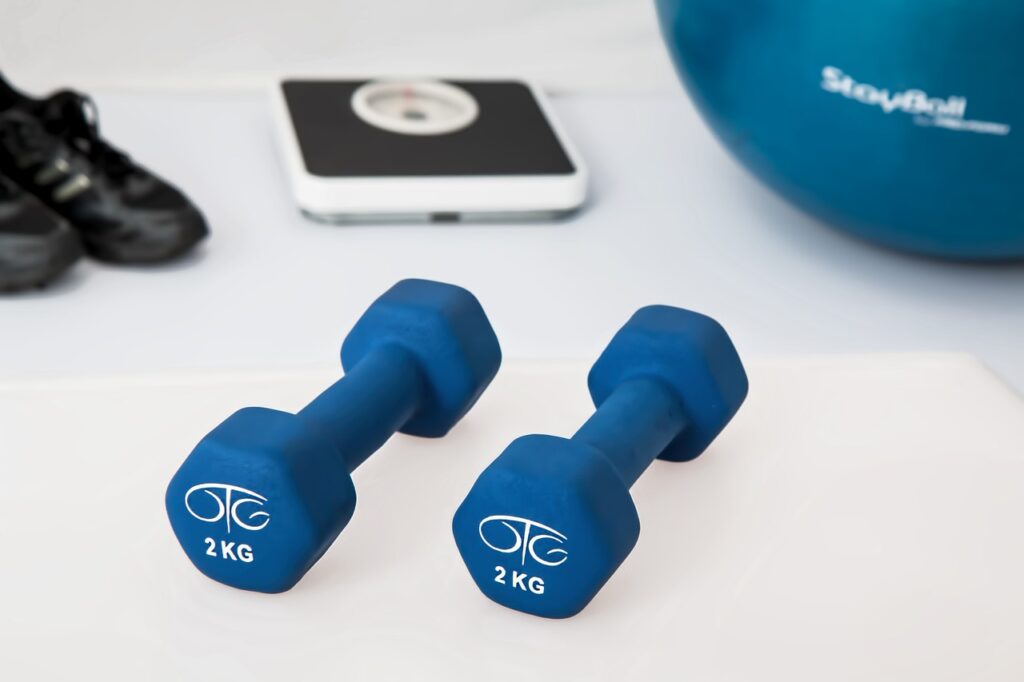Want to pack on muscle while minimizing fat gain? Look no further! In this article, discover the ultimate guide to a bulking diet that will help you achieve lean gains. From understanding macronutrients to creating a calorie surplus while maintaining a balanced and nutritious meal plan, we’ve got you covered. Say goodbye to unnecessary weight gain and hello to a sculpted physique. Get ready to fuel your body with the right foods and get on track towards achieving your fitness goals. Let’s embark on this journey to bulking success together!


Understanding Lean Gains
What are Lean Gains?
Lean gains refer to the process of gaining muscle mass while minimizing fat gain. It involves a strategic approach to nutrition and training, focusing on consuming a surplus of calories to promote muscle growth, and at the same time, keeping body fat levels low.
Importance of Lean Gains
Lean gains are important for individuals who want to achieve a muscular and defined physique. It allows you to build muscle and strength without excessive fat gain, leading to a more aesthetically pleasing physique. Additionally, maintaining a lean body composition has various health benefits, including improved insulin sensitivity, cardiovascular health, and overall metabolic function.
Creating a Caloric Surplus
How to Calculate Your Caloric Needs
To create a caloric surplus for lean gains, it is essential to know your daily caloric needs. This can be determined using a formula called the Total Daily Energy Expenditure (TDEE). TDEE takes into account your Basal Metabolic Rate (BMR) and activity level.
Calculating your BMR can be done using the Harris-Benedict equation, which takes into account your age, gender, height, and weight. Once you have your BMR, you can multiply it by an activity factor to determine your TDEE.
Determining the Right Surplus for Lean Gains
Once you have determined your TDEE, you can calculate the caloric surplus needed for lean gains. A surplus of around 250-500 calories per day is generally recommended. This allows for a gradual increase in muscle mass without excessive fat gain. It is important to note that individual differences exist, and tracking your progress and adjusting your caloric intake accordingly is key for optimal results.
Macronutrient Breakdown
Protein: The Foundation of Lean Gains
Protein is the most important macronutriential for lean gains as it provides the building blocks needed to repair and build muscle tissue. It is recommended to consume around 0.7-1 gram of protein per pound of body weight daily. Good sources of lean protein include chicken, turkey, fish, tofu, eggs, and low-fat dairy products.
Optimal Carbohydrate Intake for Bulking
Carbohydrates play a crucial role in providing energy for intense workouts and aiding in muscle recovery. The recommended carbohydrate intake for lean gains is around 2-3 grams per pound of body weight daily. Focus on consuming complex carbohydrates such as whole grains, brown rice, quinoa, and sweet potatoes, as they provide sustained energy and essential nutrients.
The Role of Healthy Fats
Healthy fats are essential for hormone production, joint health, and overall body function. They also help in optimizing nutrient absorption. Aim to consume around 0.3-0.5 grams of healthy fats per pound of body weight daily. Sources of healthy fats include avocados, nuts and seeds, olive oil, and fatty fish like salmon.
Choosing the Right Foods
Lean Protein Sources
To support lean gains, it is important to choose lean protein sources that are low in fat and rich in essential amino acids. These include chicken breast, turkey breast, fish, lean cuts of beef, low-fat dairy products, tofu, and legumes like lentils and chickpeas.
Whole Grain Carbohydrate Sources
When it comes to carbohydrates, opt for whole grain sources that are high in fiber and rich in nutrients. Whole grains such as brown rice, quinoa, oats, whole wheat bread, and pasta provide sustained energy and help keep you feeling satisfied.
Filling and Nutrient-dense Foods
Including filling and nutrient-dense foods in your diet is crucial for overall health and satiety. These foods are typically low in calories but high in important vitamins, minerals, and fiber. Examples include fruits, vegetables, leafy greens, and legumes.
The Importance of Micronutrients
Micronutrients, including vitamins and minerals, are essential for various bodily functions. Ensure that your diet is diverse and includes a variety of fruits, vegetables, whole grains, and lean proteins to provide an array of essential micronutrients.


Planning Your Meals
Meal Frequency and Timing
When planning your meals for lean gains, aim for a balance of regular and consistent meals throughout the day. This helps provide a steady stream of nutrients to support muscle growth and recovery. Aim for 3-4 main meals and 1-2 snacks per day.
Pre and Post-Workout Nutrition
To optimize your workouts and aid in recovery, it is important to focus on pre and post-workout nutrition. Before your workout, consume a meal or snack that includes both carbohydrates and protein to provide energy and aid in muscle protein synthesis. After your workout, aim to consume a combination of carbohydrates and protein to replenish glycogen stores and promote muscle recovery.
Snacking for Lean Gains
Snacking can be a great way to boost your calorie intake and provide additional nutrients. Opt for healthy snacks such as Greek yogurt with fruit, protein bars, nuts, seeds, or homemade protein shakes to support lean gains.
Supplements for Lean Gains
Whey Protein
Whey protein is a popular supplement for lean gains, as it is quickly absorbed and provides a high-quality source of protein. It can be beneficial for meeting your daily protein requirements and aiding in muscle recovery and repair.
Creatine Monohydrate
Creatine monohydrate is a well-researched supplement that can help improve strength and muscle performance during intense workouts. It also aids in muscle recovery and can be beneficial for lean gains.
Branched-Chain Amino Acids (BCAAs)
BCAAs are essential amino acids that play a vital role in muscle protein synthesis. Supplementing with BCAAs can help reduce muscle breakdown, enhance recovery, and support lean gains.
Fish Oil
Fish oil is rich in omega-3 fatty acids, which have numerous health benefits, including reducing inflammation, improving heart health, and aiding in fat loss. It can be a valuable supplement for overall health and supporting lean gains.


Effective Training Strategies
Compound Exercises for Maximum Muscle Gain
Incorporating compound exercises into your training routine is key for maximizing muscle gain. Compound exercises, such as squats, deadlifts, bench press, and pull-ups, target multiple muscle groups simultaneously, leading to efficient muscle growth and strength development.
Progressive Overload: The Key to Lean Gains
Progressive overload is the principle of gradually increasing stress on the muscles to promote continuous growth. This can be achieved by increasing the weight lifted, the number of reps performed, or the frequency of training sessions. Consistently challenging your muscles over time is essential for lean gains.
Incorporating Cardiovascular Exercise
While the focus of lean gains is primarily on building muscle, incorporating cardiovascular exercise can benefit overall health and aid in fat loss. Aim for 2-3 sessions of moderate-intensity cardiovascular exercise per week to maintain cardiovascular fitness and support a healthy metabolism.
Rest and Recovery
The Importance of Sleep
Adequate sleep is crucial for optimal muscle growth and recovery. During sleep, the body repairs and rebuilds muscle tissue, releases growth hormone, and balances various hormones involved in muscle development. Aim for 7-9 hours of quality sleep per night to support lean gains.
Active Recovery Techniques
In addition to restful sleep, incorporating active recovery techniques can help enhance muscle recovery and reduce muscle soreness. This includes activities such as foam rolling, stretching, yoga, and light cardiovascular exercise.
Managing Stress Levels
Stress can have a negative impact on muscle growth and overall health. High levels of stress can increase cortisol levels, which can hinder muscle recovery and potentially lead to fat gain. Engaging in stress management techniques such as meditation, deep breathing exercises, and hobbies can help support lean gains.
Tracking Progress
Weighing and Measuring your Food
To ensure you are consistently meeting your caloric and macronutrient goals, it is important to weigh and measure your food. This allows you to accurately track your intake and make adjustments as necessary. Use a food scale, measuring cups, and spoons to portion your food accurately.
Monitoring Body Composition Changes
In addition to tracking your nutrition, monitoring changes in your body composition can provide valuable feedback on your progress. This can be done through methods such as taking progress photos, using body fat calipers, or undergoing regular body composition assessments.
Keeping a Workout Journal
Keeping a workout journal can help track your progress in the gym and identify areas for improvement. Include details such as exercises performed, weights lifted, and the number of sets and reps completed. This allows you to progressively overload and continuously challenge your muscles for lean gains.
Maintaining Lean Gains
Transitioning to Maintenance Calories
After a bulking phase, it is important to transition to maintenance calories to prevent excessive fat gain. Gradually reduce your caloric intake back to your TDEE and adjust your macronutrient ratios accordingly. This allows you to maintain the muscle mass gained while minimizing fat accumulation.
Managing Post-Bulk Fat Loss
If you have accumulated some fat during your bulking phase, it may be necessary to implement a fat loss phase to reveal your lean gains. This can be done through a gradual reduction in calories, an increase in cardiovascular exercise, and a focus on maintaining strength training to preserve muscle mass.
Lifestyle Changes for Long-Term Success
To maintain lean gains in the long term, it is important to adopt sustainable lifestyle changes. This includes finding a balance between nutrition, training, rest, and stress management that can be maintained indefinitely. Incorporate healthy habits into your daily routine, prioritize self-care, and aim for consistency rather than extremes.
By understanding the principles of lean gains, implementing a well-rounded nutrition and training plan, and prioritizing rest and recovery, you can achieve your goal of building a lean and muscular physique. Remember to listen to your body, track your progress, and make adjustments as necessary to ensure continued success on your lean gains journey.



